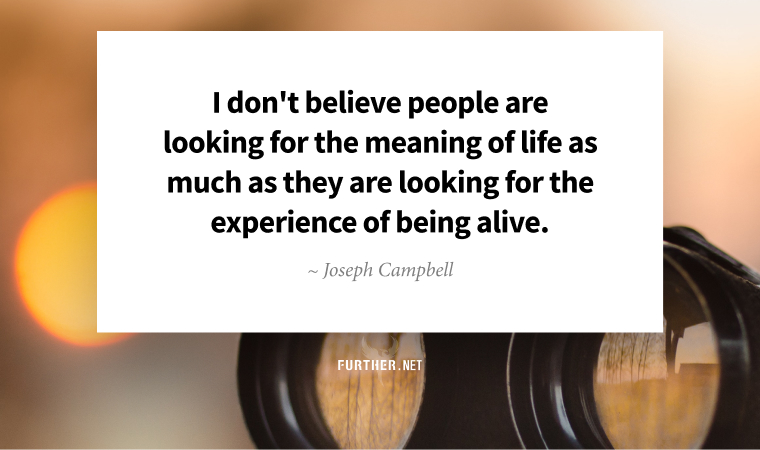
As people of a certain age, our search for meaning and purpose can feel at once essential and overwhelming. Making sense of our existence — the big WHY of who we are and how we can find happiness on this whirling planet in an infinite, ever-expanding universe (yes, I’m paraphrasing Monty Python) — can seem incomprehensibly enormous.
Good news! New research indicates that the age-old quest for meaning might be much easier than imagined. While contemplating the overarching implications of our work, relationships, faith, and impact on the world and fellow human beings is part of existential sense-making, it’s the simple everyday experiences that add up.
In other words, every little connection counts.
The Big Picture
Throughout the ages, finding meaning in life (MIL) is something countless scholars, from philosophers to theologians, have studied. More recently, scientists have come up with three research-backed variables related to people’s MIL.
- Coherence: How the different aspects of your life combine in an organized way
- Purpose: The impact of your goals and values on your life
- Existential mattering: Understanding your existence and the importance of your place in the world (i.e., developing your existential intelligence)
These pathways all demand perspective and a broad approach to making meaning. But new research has revealed a fourth avenue open to you each day: “experiential appreciation” — placing value on daily experiences.
A Little Appreciation, Please
According to the study’s authors, experiential appreciation is as vital in developing a meaning mindset as the other three variables. The team conducted seven experiments to evaluate how experiential appreciation uniquely shapes our perceptions of meaning. The research ranged from a test to evaluate how life appreciation helped people cope during the early stages of the pandemic to having subjects write about meaningful events and comment on awe-inspiring videos.
By tuning into the beauty of connection to people, events, and places on a regular basis – the “small moments’ – the researchers found people can cultivate a strong sense of purpose and, along with it, fulfillment.
Simply appreciating one’s experiences can foster a rich sense of meaning and perhaps shore up confidence that life has been and will be worth living.
If this sounds like mindfulness, it is, even though the researchers didn’t specifically assess mindfulness in this study. Paying attention to what you’re doing — and not just your thoughts about what you’re doing — makes it easier to value experiences. And that makes a meaningful difference in your everyday life.
What Does It All Mean? (Mindful)
